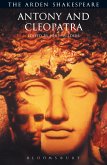With its explorations of sexual ambivalence, As You Like It speaks directly to the twenty-first century. Juliet Dusinberredemonstrates that Rosalind's authority in the play grows from new ideas about women and reveals that Shakespeare's heroine reinvents herself for every age. But the play is also deeply rooted in Elizabethan culture and through it Shakespeare addresses some of the hotly debated issues of the period."This will be the definitive edition of As You Like It for many years to come" - Phyllis Rackin, University of Pennsylvania
'An Arden editor must present an overview of the play's criticism [and] must also take into account the play's ongoing dissemination through performance on stage and screen. Despite these arduous demands, Dusinberre's edition, with its editorial apparatus, its substantial introduction (142 pages), its notes, and its various appendices, fulfills the above requirements admirably...Dusinberre addresses a theatre history that bears witness to the impact that various social movements, especially feminism and gay/lesbian (and now queer) activism, have had on the performance of one of Shakespeare's most gender-bending plays...It inscribes the feminist, queer, and historicist criticism of the past thirty years into the historical memory of Shakespeare studies.' Shakespeare Quarterly









